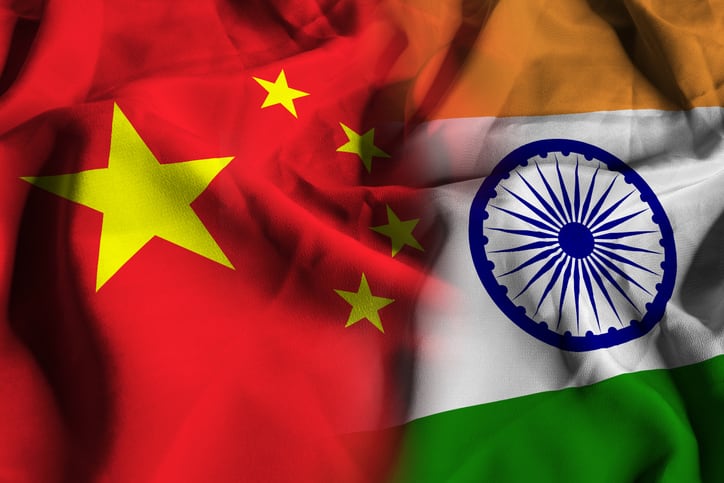India, on Wednesday, once again declined to endorse China's expansive 'One Belt One Road' (OBOR) initiative, marking itself as the sole member of the Shanghai Cooperation Organisation (SCO) not to back the project. The decision was reaffirmed at the conclusion of the SCO’s Council of Heads of Government meeting, which was hosted in Islamabad.
A joint communique issued at the end of the meeting highlighted that countries like Russia, Belarus, Iran, Kazakhstan, Kyrgyzstan, Pakistan, Tajikistan, and Uzbekistan reiterated their support for China's OBOR initiative. The statement also referenced the ongoing collaboration between these nations to integrate the Eurasian Economic Union (EEU) with the OBOR project.
India has consistently refused to endorse OBOR during previous SCO meetings, citing concerns over the China-Pakistan Economic Corridor (CPEC), a key component of OBOR that passes through Pakistan-occupied Kashmir (PoK). India views CPEC as a violation of its sovereignty and has been vocally critical of China's broader Belt and Road Initiative (BRI), which aims to enhance global trade connectivity through massive infrastructure projects.
Big breaking :
— Tarun 🚩🇮🇳 (@fptarun) October 16, 2024
India opts out of supporting China's One Belt, One Road (OBOR) connectivity initiative in SCO Joint statement.
All other SCO member countries support it.
India 🇮🇳 is in no mood of negotiations with Pakistan 🇵🇰 pic.twitter.com/dwAwWHHRfa
The OBOR has faced increasing global criticism, with several countries grappling with heavy debt burdens from projects linked to the initiative. Many nations have found themselves financially strained while implementing infrastructure projects under China's ambitious plan.
During his address at the SCO conclave, External Affairs Minister S. Jaishankar acknowledged these concerns, stating that "debt is a serious concern," though he chose not to provide further details.
"Collaborative connectivity can create new efficiencies," he said.
The joint communique stated that the heads of delegations acknowledged the proposal to establish a 'Greater Eurasian Partnership.' This initiative would involve the participation of the SCO, the Eurasian Economic Union, the Association of Southeast Asian Nations, and other interested countries and multilateral organizations.
"The heads of delegations, reaffirming their desire to ensure stable economic and social development in the SCO region, noted the importance of implementing the SCO Economic Development Strategy for the period up to 2030 and the programme of multilateral trade and economic cooperation of the SCO member states," it said.
"They stressed the need for coordinated efforts through the mechanisms of relevant cooperation in order to implement the respective action plans," it added.
The SCO conclave was chaired by Pakistan Prime Minister Shehbaz Sharif. Attendees included External Affairs Minister S. Jaishankar, Chinese Premier Li Qiang, Belarusian Prime Minister Roman Golovchenko, Kazakh Prime Minister Olzhas Bektenov, Russian Prime Minister Mikhail Mishustin, Tajik Prime Minister Kohir Rasulzoda, Uzbek Prime Minister Abdulla Aripov, Kyrgyzstan's Chairman of Ministers Cabinet Akylbek Zhaparov, and Iran's First Vice President Mohammad Reza Aref.
You may also like

Fitness influencer shares two snaps to show 'side people don't want you to see'

Yellow weather warnings blanket UK as powerful winds trigger 'danger to life' alert

Siddaramaiah, Shivakumar inaugurate Cauvery 5th Stage Project

Who do you want to see on I'm A Celebrity this year? Take our poll and have your say

Zoya Akhtar and Reema Kagti's Documentary 'Turtle Walker' to Premiere Internationally

L&T Technology Services Q2FY25 Results: Revenue Hits ₹2,637.9 Crore, Declares Interim Dividend Of ₹17

GCCs continue robust leasing momentum as Indian office sector eyes new record in 2024

Met Office issues 32-hour warning as UK to be hit by 80mph wind

Kyle Walker's wife Annie Kilner files for DIVORCE after Lauryn Goodman heartache

Liverpool took Mohamed Salah matters into its own hands with stern Egypt message

Sensex plunges 318 pts, Infosys and JSW Steel top losers

'As long as I am alive, I will stay with Salman bhai', video of bodyguard Shera goes viral after Baba Siddiqui's murder

EU 'crisis' as one country breaks ranks and tries to buy more Russian gas

Bigg Boss Telugu 8 braces for jaw-dropping elimination, bottom 2

The best luxury gifts to give this Christmas from cashmere and perfume to homeware

BharatPe FY24 Revenue Surges To INR 1,426 Cr

'When You Become Fake, Your Image Suffers': Avinash Mishra Opens Up About Bigg Boss 18 & Risk To His Reputation (Exclusive)

Luke Littler backed to eclipse David Beckham as teenagers net worth continues to soar

Clint Eastwood's 'final film' dealt massive blow ahead of release 'What a dumpster fire'

PM Modi to gift stadium to Purvanchal sports enthusiasts just in time for Diwali







